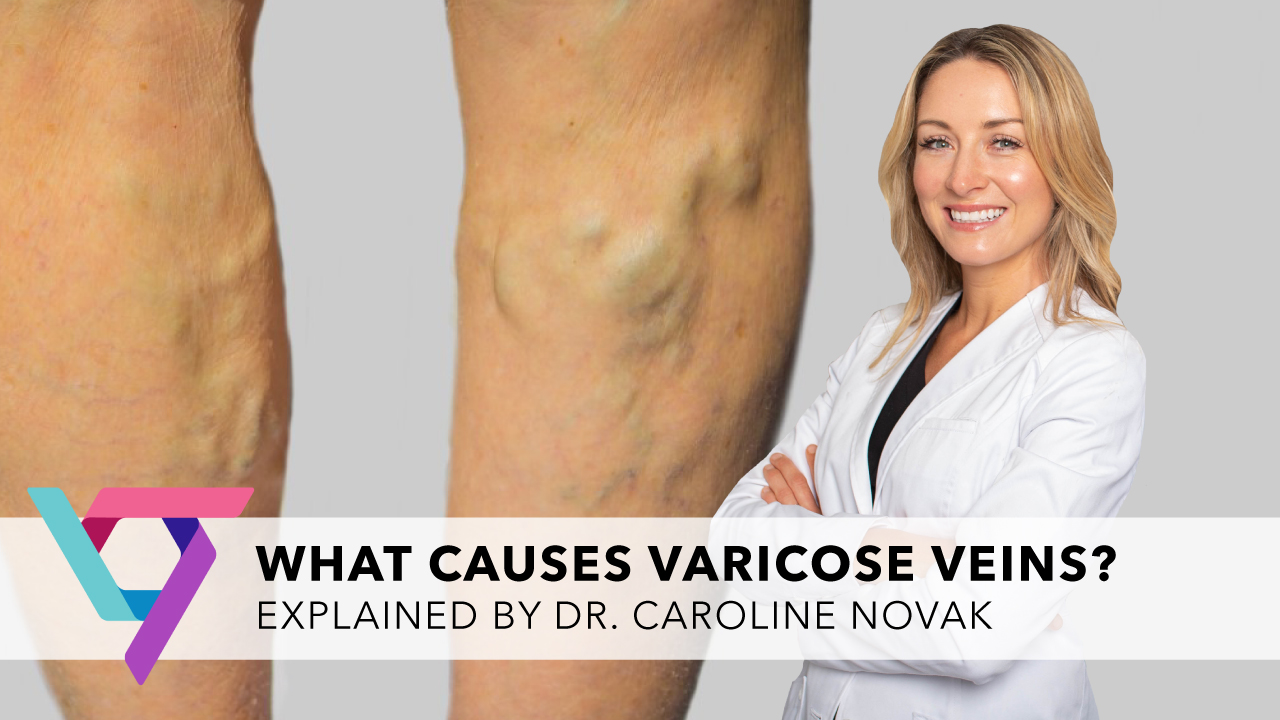Common Vein Questions and Answers
Chronic venous insufficiency is currently one of the most under-diagnosed chronic diseases out there. Even though it progresses rapidly and can lead to serious complications, including varicose veins and spider veins, most people don’t seek treatment in time. Furthermore, venous insufficiency affects approximately 50% of all women and 30% of all the people in the world, but its awareness is still considerably lacking.
Most people think that spider veins and varicose veins are completely cosmetic issues — that they do nothing but look terrible and don’t constitute a medical emergency. In some cases, yes, spider veins only look terrible and cause social anxiety. However, in most cases, spider veins and varicose veins are simply symptoms of chronic venous insufficiency, which can eventually lead to consequences like profuse bleeding, deep vein thrombosis, leg ulcers, discoloration of the skin, and so much more.
In this article, we want to shed some light on the relatively-obscure field of vein disease. Please read on for a discussion of some of the most common vein questions and answers.

Why do I have Varicose Veins?
Varicose veins and spider veins occur because of a circulatory disorder called chronic venous insufficiency in which the valves in the veins malfunction. These valves are responsible for the smooth circulation of blood from the legs to the heart. They allow blood to flow to the heart and prevent venous reflux due to gravity. When the valves collapse, blood flows backward and accumulates in the leg veins.
Over time, as more blood pools in the veins, it applies greater pressure on the vein walls. The combined pressure causes veins to dilate outwards and bulge out of the surface of the skin in the form of twisted rope-like varicose veins or spider veins.
What are the Signs and Symptoms of Vein Disease?
It’s important to understand that the signs and symptoms of vein disease progress rapidly. They may be pretty benign in the earliest stages. In fact, the early warning signs of vein disease are so benign that most people just assume they are signs of aging and don’t seek treatment. For this question, we’ll break down our answer into two parts — early warning signs of vein disease and eventual symptoms and complications of vein disease.

Early Warning Signs of Chronic Venous Insufficiency
- Heaviness of the legs.
- Frequent cramping sensations on the legs.
- Swollen ankles and feet.
- Restless legs, especially at night.
- Worsening signs and symptoms towards the end of the day or after long periods of being stationary.
Signs and Symptoms of Chronic Venous Insufficiency in the Latter Stages
- As the veins dilate due to the accumulation of blood, they also get sensitive. As such, the tiniest of scratches lead to excessive bleeding.
- The formation of leg ulcers on the surface of skin because your wounds don’t heal due to lack of circulation.
- Discoloration of the skin and formation of red scaly patches.
- Deep vein thrombosis, i.e., the formation of blood clots inside the veins due to the accumulation.
What are the Risk Factors of Vein Disease?
The following are some of the most common risk factors of vein disease:
- Genetics, because it means you may have inherited weaker vein walls or certain other genetic traits.
- Age, because your vein valves weaken over time.
- Female biological sex, because female hormones like estrogen and progesterone weaken the vein valves.
- Pregnancy, because it induces your body to produce a lot more blood and your hormones also increase considerably.
- Obesity, because it places great pressure on your veins.
- Stationary lifestyle with a stationary job, because it encourages blood to accumulate in your lower legs.
How to Prevent Varicose Veins?
You can try to prevent varicose veins with some simple lifestyle changes and tips. These tips won’t prevent vein disease for sure, but they’ll minimize the risk.
- Wear compression stockings because they apply pressure on your blood vessels and encourage blood circulation to the heart.
- Engage in activities that focus on calf-muscle contractions like running, swimming, and cycling because they help push accumulated blood along.
- If you have a stationary job that requires you to sit a lot, then take frequent breaks to stretch and walk. You can also elevate your legs while sitting to facilitate blood circulation in the correct direction.
What are the Best Treatments for Varicose Veins?
Varicose veins can be treated with minimally invasive procedures that remove or collapse the underlying diseased saphenous vein that’s causing the problems. The following are the best treatments for varicose veins:
- Radiofrequency ablation, which uses heat energy directed via a catheter to collapse the diseased vein and restore blood circulation to the heart.
- Endovenous laser ablation, which uses laser energy directed via a catheter and laser fiber to destroy the diseased vein and reroute the accumulated blood to healthier veins.
- VenaSeal, which uses a single injection of a medical adhesive to seal the walls of the diseased vein together and restore correct blood circulation to the heart.
- Sclerotherapy, which is a cosmetic treatment used to get rid of the superficial varicose veins after the underlying vein disease has been treated.
Diagnosis and Treatment at Best Vein Treatment Center
Vein Treatment Clinic is the best spider vein and varicose vein treatment center in the country. We have a team of highly qualified board-certified and Ivy League-educated vein doctors who thoroughly study your conditions and run diagnostic tests in order to identify the root cause of your signs and symptoms. Based on that, we treat vein disease using the latest minimally invasive vein treatment procedures. If you have any other questions, please schedule an appointment with the best vein treatment center near your location.









